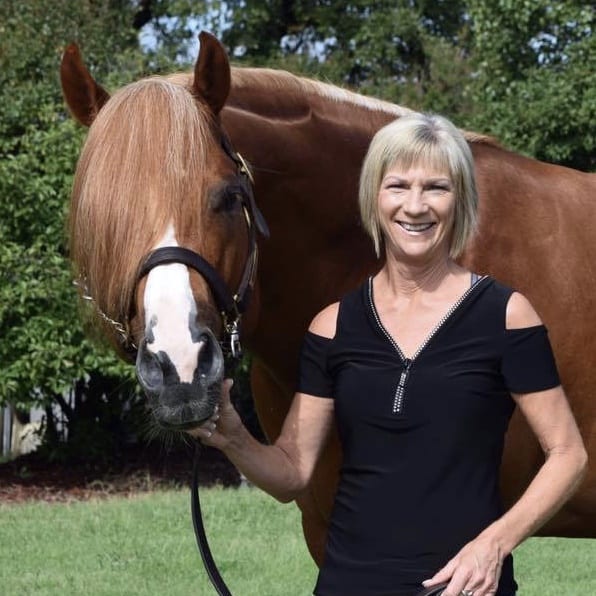You’ve bred your perfect match, waited what seemed like the most extended two years of your life, or maybe you were able to purchase your next four-legged version of hopes and dreams. Now, you have to decide where to send your prospect. Part 3 of our Picking Them Right series examines how to pick the most appropriate trainer for your prospect.
If you missed Part 1 and Part 2 of the series, read them first before moving on to the final topic discussed below. Part one explained the process of picking the right stallion for your mare while Part 2 went into depth on the type of prospect a horse owner should choose to put into training.
In Part 3, GoHorseShow was able to gain insight from the industry’s top breeders and performers, Sandra Morgan, Amy Gumz and Shelley and Kim Donovan on how they narrow down where to send their horses for training.
Match Game
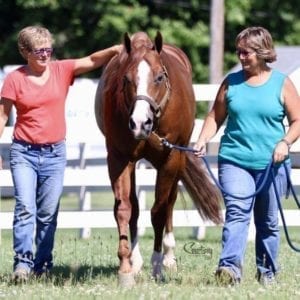 Shelley and Kim Donovan of Sturgis, Michigan, and owners of the famous stallion, Too Sleepy To Zip, have been breeding and raising champions for years. Their hands-on relationship to each foal allows them insight into their prospects’ personalities. They use this information to their own, the trainer and the horse’s advantage when choosing where to send them when training time arrives.
Shelley and Kim Donovan of Sturgis, Michigan, and owners of the famous stallion, Too Sleepy To Zip, have been breeding and raising champions for years. Their hands-on relationship to each foal allows them insight into their prospects’ personalities. They use this information to their own, the trainer and the horse’s advantage when choosing where to send them when training time arrives.
Shelley Donovan explains, “We know our horses from living with them from day one. We try to match the horse, its structure, temperament, etc. with the trainer. Some trainers like and pick a more compact style and others choose horses that are lankier.”
Knowing a trainer’s preference for body style and movement and matching that to your horse gives both the trainer and the horse excellent opportunity to be successful.
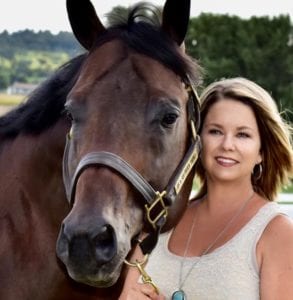 Amy Gumz, owner and breeder at Gumz Farms LLC in Morganfield, Kentucky stands some of the industry’s top stallions such as Its A Southern Thing, No Doubt Im Lazy, and Hes Berry Blazin. Gumz agrees that matching the prospect to a trainer’s style is the first consideration an owner should have.
Amy Gumz, owner and breeder at Gumz Farms LLC in Morganfield, Kentucky stands some of the industry’s top stallions such as Its A Southern Thing, No Doubt Im Lazy, and Hes Berry Blazin. Gumz agrees that matching the prospect to a trainer’s style is the first consideration an owner should have.
“I try to match a personality and training style with the individual horse,” Gumz states, “There is no sense in sending a timid and sensitive yearling to a trainer that has an intense program. I also listen to what lineages the trainers like. Most are very vocal about the pedigrees they like or don’t like. Traditionally, you are wasting your time sending a yearling bred with a pedigree that the trainer has been vocal about not liking.”
Ask questions and listen carefully to answers. Most trainers will be happy to explain their preferences and answer queries of potential clients.
Sandra Morgan, owner of Mechanic and up and coming stallion, The Mile High Club breeds a variety of foals. She considers a trainer’s strength and connects that to the strength of the yearling. “The first thing I consider is what class I want that horse shown in.” From there, she matches up the ability of a trainer and his or her specialty to the horse in question.
On the Watch
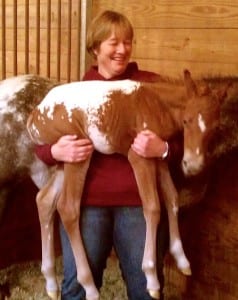 While location and price of a trainer are considerations, our experts suggest that owners survey potential trainers at shows to examine style and training methods. Donovan advises, “We spend more time watching work pens rather than show pens. We watch for the trainers that mold their program around the horse and not try to force the horse into theirs.”
While location and price of a trainer are considerations, our experts suggest that owners survey potential trainers at shows to examine style and training methods. Donovan advises, “We spend more time watching work pens rather than show pens. We watch for the trainers that mold their program around the horse and not try to force the horse into theirs.”
It is also necessary for owners to have a grasp of what is important to them personally as owners. Gumz clarifies, “Good work ethic and communication are at the top of my list.”
Some owners want to be very hands-on in knowing every step of their horse’s progress while others like periodic updates as necessary. Talk with potential trainers and identify what style complements you both. Most trainers are happy to share information and development of the prospect with their clients at regular intervals.
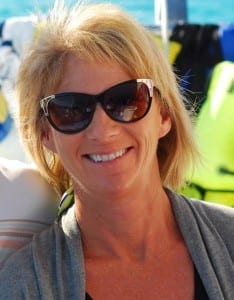 However, clients who need to micro-manage will conflict with professionals who are more sovereign. It is essential to choose a program that not only fits the horse but will also keep the owner satisfied.
However, clients who need to micro-manage will conflict with professionals who are more sovereign. It is essential to choose a program that not only fits the horse but will also keep the owner satisfied.
Once a trainer has been chosen, it is also pertinent for the client to buy into the program and trust the trainer. Communication of expectations by both parties before training begins is the key to a symbiotic relationship. Morgan carefully chooses her trainers and trusts, “that they are getting the most possible potential out of the horse’s movement that he or she can.”
For the Win
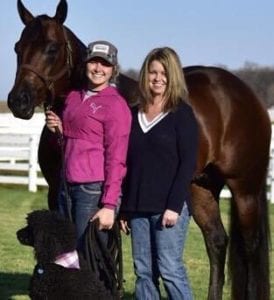 Ideally, we all want to win, and we all want our horse to be brought to maximum winning potential. But wins are only as good as the moment in the show pen. As horse lovers, we all know there is more to competition. It’s the camaraderie, the experiences and the traveling we also enjoy.
Ideally, we all want to win, and we all want our horse to be brought to maximum winning potential. But wins are only as good as the moment in the show pen. As horse lovers, we all know there is more to competition. It’s the camaraderie, the experiences and the traveling we also enjoy.
Gumz emphasizes, “Find a camp that you enjoy and are comfortable with. It’s not all about winning but having fun is critical. Since most of us do this as our hobby, it’s too expensive to participate if you don’t have fun.”
While Shelley and Kim Donovan are known to have fun and laugh at horse shows, they get a lot of joy of out the competition part as well. When choosing a trainer, they consider more than just what the trainer can do with the horse, but what can be done for themselves as amateurs.
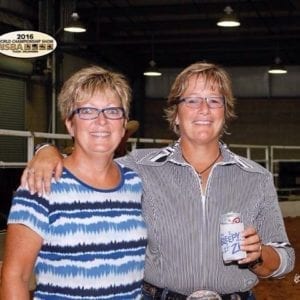 “The important part of choosing a winning trainer for us is those that have non-pros winning. That shows us they are doing their job. If you are looking for a trainer, take the time to watch the work pen and watch them with their non-pros. If the horses are performing the same or similar, then they are doing their job,” Donovan explains.
“The important part of choosing a winning trainer for us is those that have non-pros winning. That shows us they are doing their job. If you are looking for a trainer, take the time to watch the work pen and watch them with their non-pros. If the horses are performing the same or similar, then they are doing their job,” Donovan explains.
Sandra Morgan, a former trainer herself now turned non-pro agrees, “The winning reputation of a trainer does not influence me over the trainer getting the most out of the horse, and that they are accepted and liked by their peers. Pick a trainer that you will be most happy with for both you and your horse.”
About the Author: An AQHA Professional Horseman, Mo West, currently lives in Tracy, California. Formerly a high school English teacher for over 15 years, she now pursues her passion. As assistant trainer at Busick Quarter Horses, she enjoys training and coaching for all around events. She is an avid world traveler and loves boats and the water. Fishing is her second favorite activity, and she always has her beloved dog, Crash at her side whenever possible.


